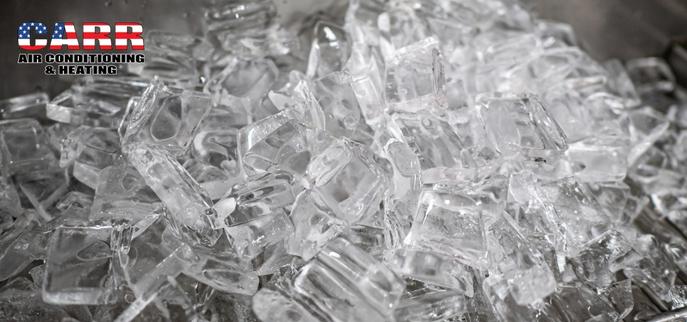How to clean ice machines
Commercial ice machines are essential in the restaurant and catering service industries. Keeping drinks at the optimal temperature ensures that taste and safety are maintained. Unfortunately, it is easy to overlook the importance of cleaning these machines, as sand, dust, and mold can contaminate the ice and put customers at risk of illness. As the FDA considers ice a food, all equipment must be cleaned and regularly maintained to meet government standards. Are you aware of how to clean an ice machine? Follow the step-by-step instructions below to ensure your ice production and solvents remain safe and sanitary.
The Reason Why Commercial Ice Machines Should Be Cleaned Regularly
The Food and Drug Administration (FDA) regulates the cleaning of commercial ice machines used by large ice manufacturers because ice is considered food. To ensure the safety and purity of the water supply, the FDA looked at how to clean an ice machine and a pipe to prevent water or ice pollution.
If not properly cleaned, a commercial ice machine can be a place to breed harmful bacteria and pollution. Regular cleaning and knowing how to clean an ice machine are important factors in this business.
How Frequently Should You Clean Commercial Ice Machines?
Don’t hesitate to contact your owner’s manual to understand a proper cleaning schedule. At least every six months, commercial ice machines should be cleaned to ensure failure-free operation. However, the cleaning frequency can differ because of the brand, pattern, and use.
Here are some signs that your ice machine requires cleaning:
- The ice has an unusual taste or odor
- The ice is appearing cloudy
- The quantity of ice is lower than usual
- Partially formed ice cubes
Cleaning procedures can remove minerals, dust, and mold. It includes external repairs, tunnel changes, dust removal, and corrosion therapy. The disinfection process removes harmful bacteria, dust, and biofilm.
Why Follow the Recommendations of Your Manufacturer?
The methods of cleaning the ice machine can be different, so it is important to review the manufacturer’s manual before starting. Recommended cleaning solutions and disinfection agents are essential for maintaining food safety because a solution will damage the machine or cause a biofilm risk.
In most cases, only a small amount of soft, clean cloth and special cleaning solutions designed for ice machines are needed. Ice machine cleaner has no nickel and contains 30 percent or less phosphate, making it an excellent choice for cleaning and distinguishing.
The Cleaning Process Simplified
Manufacturers’ instructions may vary, so following them to maintain warranty coverage is essential. Please do so to avoid the loss of any potential benefits.
- Reduce the disinfection solution with the correct water balance.
- Use a spray bottle or part of the solution.
- Do not clean the parts with water after dispensing with disinfection.
- Use a spray bottle to cover all dietary treatment surfaces and disinfectants.
- Reassemble all removed devices.
- The recommended time for the disinfection agent to start
- Connect the ice machine and the electricity distribution.
- Use a spray or bottle for a natural cycle.
- Allow and add disinfectant to the sink.
- Keep the ice machine cycle to start on.
Cleaning the Exterior of the Commercial Ice Machine
Wash out of the machine with a wet towel or a soft daily washing solution to prevent the accumulation of dirt. Avoid using abrasives, corrosion solutions, or chlorine because they could damage the machine. To remove the dust from the coil, use a vacuum cleaner with a soft brush attachment. In addition, take the air filter and wash it with soap and water.
How Often Should You Replace Water Filters?
On average, except for the tunnel system with other principles, replacing the water filter every six months is advisable. The block filter can significantly reduce the quality and quantity of water.
Why You Should Always Have Clean, Clear Ice
By cleaning and sanitizing your ice machine, you will be able to maintain the efficiency of your unit, prevent increased energy costs, and make clean and safe ice that is ready to use. Remember to clean at least once every six months, and don’t forget to refer to your ice machine guide for specific instructions.
On average, replacing water filters every six months is recommended unless otherwise specified by the filter system. Clogged filters can significantly reduce both the quality and quantity of water.
If your ice machines need repairs or maintenance, contact Carr AC today. Our team will inspect and repair your commercial ice machines and ensure they are working properly all year long!

